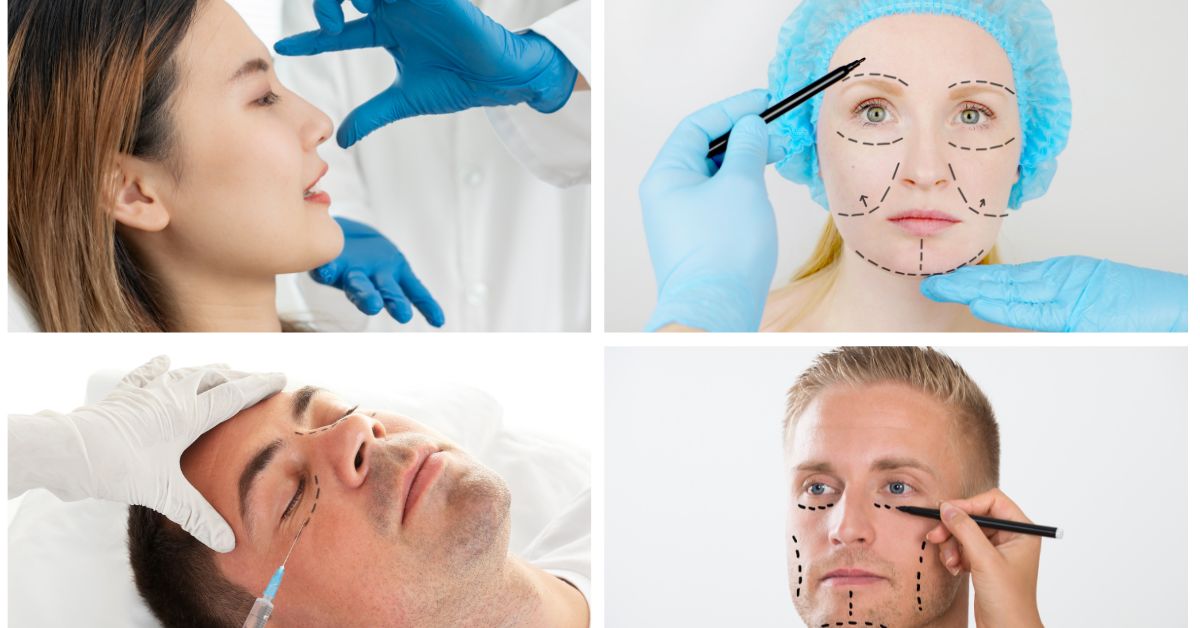Facial plastic surgery can be beneficial since facial expressions enable us to engage and communicate with one another.
Our appearance influences how others see us. While some people choose to alter particular aspects of their appearance, others are born with facial anomalies such as a cleft lip, birthmark, or other birth defects.
Fortunately, many issues, such as the effects of aging, sun damage, or past face injuries, may be treated with treatments done by a qualified surgeon.
Why Should I Consider Facial Plastic Surgery?
Otolaryngologists, sometimes known as ENT experts, diagnose and treat a variety of diseases affecting the entire face, nose, lips, ears, and neck.
Facial plastic surgery is a branch of otolaryngology that is classified into two types: Reconstructive and Cosmetic.
Reconstructive plastic surgery is used to treat individuals who have birthmarks on their faces, cleft lips, and palate, protruding ears, or a crooked grin that interfere with their ability to function normally.
Other disorders resulting from accidents, trauma, burns, or previous surgery can also be treated with this type of surgery.
Furthermore, certain reconstructive surgeries are necessary to cure preexisting conditions such as skin cancer.
What are the Types of Treatment?
Non-surgical treatments and methods, such as chemical peels, microdermabrasion, and injectables, can also help with some face issues.
Botox, Dysport, Restylane, Juvederm, Radiesse, Sculptra, and other fillers can be injected beneath the skin to enhance the look of the face.
Surgical facial plastic treatments include:
Rhinoplasty/Septoplasty
Surgery of the exterior and inside nose in which cartilage and bone are restored and sculpted to improve the nose’s look and function.
Blepharoplasty
Surgery of the upper and/or lower eyelids to enhance the function (such as sagging eyelids) and/or look of the eyes.
Browlift
A surgery to address forehead wrinkles and sagging brows.
Rhytidectomy
Skin tightening and wrinkle removal surgery for the face and neck.
Liposuction
Surgery to remove extra fat under the chin or in the neck.
Facial Implants
Surgery to make particular facial features (cheek, lips, chin) more prominent and well-defined.
Otoplasty
Surgery to restructure the cartilage of the ears so that they protrude less.
Skin Surface Procedures
Surgery that uses lasers, chemical peels, or dermabrasion to increase the smoothness of the skin.
Facial Reconstruction
This corrects defects in the skin, bone, or muscles of the face caused by previous surgeries, injuries, illnesses, or birth conditions.
It includes procedures like scar revision, after-cancer reconstruction, fixing facial trauma, removing birthmarks, and correcting abnormalities in the skull, palate, or lips.
How Should I Prepare for Facial Plastic Surgery?
Knowing what to expect from facial plastic surgery will help you feel more at peace.
Depending on you and your body, dangers may include nausea, numbness, bleeding, blood clots, infection, and anesthesia-related unpleasant effects.
Furthermore, if you smoke, you should stop for two weeks before your operation to maximize recovery thereafter.
Most plastic surgeries do not need a lengthy hospital stay.
Depending on the scope of your operation, several treatments can be performed as an outpatient.
Some operations may necessitate an overnight or two-day hospital stay.
In any case, before you are discharged from the hospital, your surgeon will explain any specific care you may need while healing at home.
You will get information on how to care for your incision.
Sutures and surgical staples will be removed in the clinic about one week following the surgery.
Your surgeon should also explain any particular food restrictions, medications to take or avoid, and activity limitations.
Most patients feel comfortable returning to work one to two weeks after surgery, once the swelling and bruises have subsided and their look has improved.
- What Questions Should I Ask My Doctor?
- Are there any alternatives? What happens if I do nothing?
- How frequently do you execute this sort of procedure? How many times?
- What type of preparedness plans should I make?
- How long is the operation going to take?
- What drugs should I avoid before surgery?
Because certain facial plastic treatments are optional, it’s critical to establish your medical coverage before beginning therapy.
Insurance often covers reconstructive plastic surgery, but verify with your provider.
If you will be paying for the treatment, inquire about payment alternatives and whether there is a payment plan.


